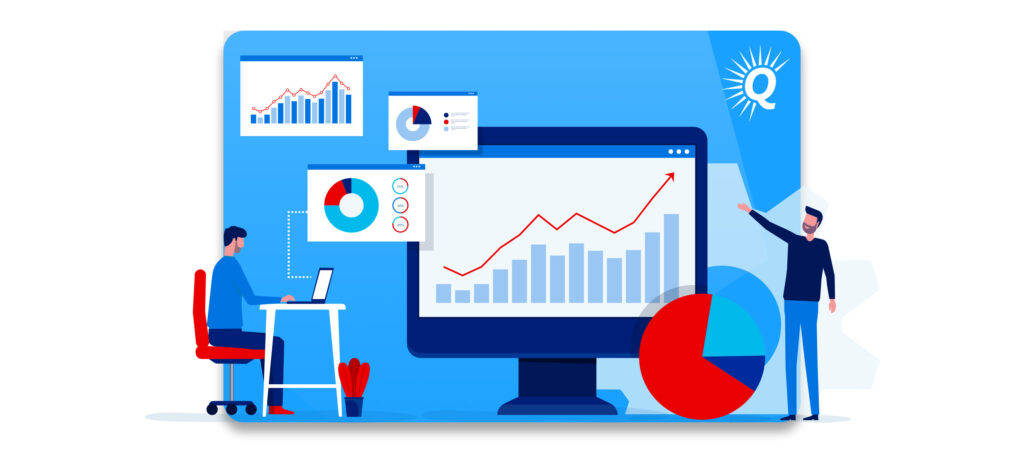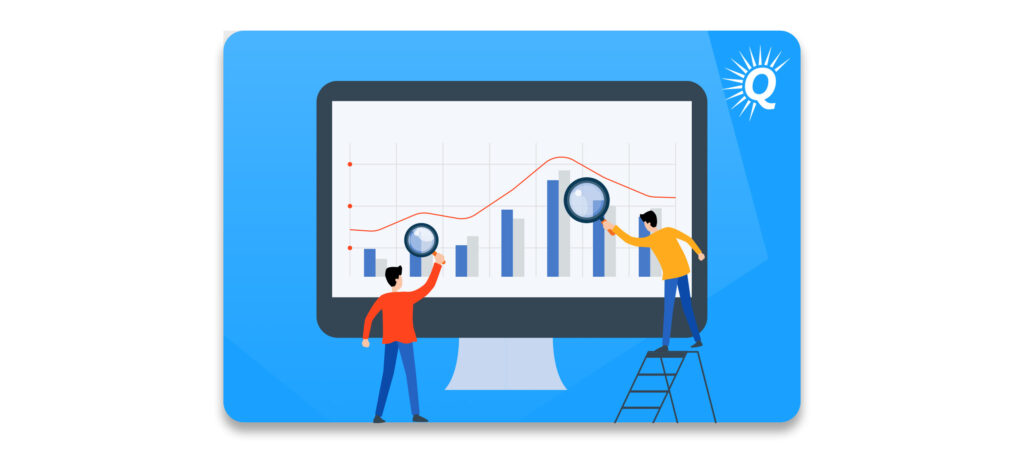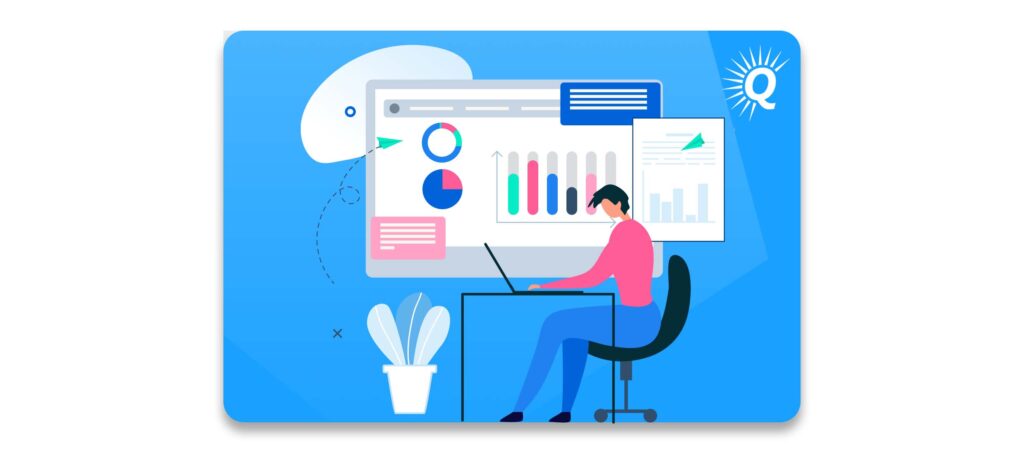Topics:
Never Miss a Beat - Get Updates Direct to Your Inbox
FILTER:


The State of M&A in 2023: What Every Seller Should Know
By Quiet Light
If you are thinking about selling your online business, it’s important to understand the current market trends in M&A. Not only do market trends impact your business’s current value, but they can also help inform what steps you should take to prepare for a successful exit.
In this article, we discuss:
- The rise and decline of the M&A market in 2021 and 2022 (especially for FBA businesses)
- The current state of M&A in 2023
- What you can do to mitigate market risks as a seller
Related Articles: How to Get Your Business Ready to Sell


The Rise and Decline of M&A in 2021 and 2022
Reflecting a changing world, the past several years have been a wild ride for mergers and acquisitions (M&A). If you’ve been paying attention to the market, you have surely noticed the ups and downs. Below, we summarize what happened (and why it happened) in 2021 and 2022.
2021: The boom year
2021 was an unprecedented year for M&A. For starters, the number of online businesses sold skyrocketed to levels never seen before, and certainly unmatched in the preceding several years. This is particularly true for Amazon FBA businesses, which was helped in part by the rise of Amazon aggregator firms.
“2021 was an unprecedented year for M&A.”
At the same time, average deal prices increased within M&A. Multiples surged and entrepreneurs were earning larger payouts than they could have expected previously. Due to high demand, the average length of time a business remained on the market dropped significantly.
2021 was clearly a seller’s market. Owners were selling their businesses in greater numbers, earning higher payouts, and selling more easily and quickly than previously.
Why M&A deals and prices surged
The boom times of 2021 were made possible by a confluence of unlikely factors. The disruption of the pandemic wreaked havoc on individuals and society around the world. At the same time, it also brought with it a number of shifting patterns that favored online businesses.
First, consumer behavior changed suddenly and drastically. As the world locked down and brick-and-mortar stores closed, consumers shifted their lives online. This included online shopping, more time browsing the internet, and more demand for software to work or play online. Amazon businesses, ecommerce brands, content sites, SaaS sites, and other online businesses all saw a huge boost in demand and sales.
This increased demand for online services was accelerated by the underlying strength of the economy. Buoyed by large cash infusions into the economy, consumer spending soared compared to the depths experienced early in the pandemic. While this spending fueled inflation, online businesses benefited hugely.


As revenue and profit for online businesses increased sharply, investors took notice. Given the state of the market, entrepreneurs, private equity groups, and other investors increased their acquisitions of online businesses. This new demand was fueled in part by the aggressive rise of Amazon aggregator firms. These firms, flush with cash, went on a buying spree.
As the buyer pool increased dramatically, sellers could expect increased competition for their businesses. More competition translates into higher sales prices and better deal terms. Spotting a unique opportunity, many owners decided to sell in order to take advantage of the market.
“As the world locked down, consumers shifted their lives online.”
M&A in 2022
The unique combination of factors brought about by the disruption of the pandemic was never going to last. As the world started to return to some semblance of normalcy toward the end of 2021 and into 2022, the market corrected. The impact this had on online businesses was made more pronounced by the decline of Amazon aggregator firms.


Offer values and sale prices dropped a bit for M&A, and fewer owners decided to sell. The number of deals decreased below 2021 levels but remained above pre-pandemic levels. Multiples dropped from their 2021 peaks but still remained higher than in pre-pandemic years. Consistent with previous trends, these changes were most pronounced for Amazon FBA businesses.
These changes were brought about by several factors. As the pandemic receded, people returned to their normal patterns. More shopping was done in brick-and-mortar stores, and people spent less time online. Some workers returned to the office (though not all), reducing the need for some SaaS services.
On average, these changes hurt online businesses. Revenue and profits fell from their pandemic peaks. As business slowed, the relative strength of investing in online businesses fell compared to other investment options. At the same time, investors who had splurged during 2021 were feeling the pain of a slowing sector and economy. As the economy shifted, investors started looking for stabler assets to put their money into.
Aggregators, who had come on the scene and made a big impact by adding demand for online businesses, started to recede.
Lastly, as post-pandemic inflation kicked in, interest rates began to rise. As borrowing became more expensive, potential investors found it harder to access capital to fund a purchase.
“The unique combination of factors brought about by the disruption of the pandemic was never going to last.”
Thinking of Selling Your Business?
Get a free, individually-tailored valuation and business-readiness assessment. Sell when you're ready. Not a minute before.
Understanding the M&A Market in 2023
So far, 2023 has seen increased demand compared to 2022. However, business transactions and average M&A deal prices have not returned to their 2021 peak. Overall, the economy is doing better than in 2022, and potential buyers are more confident to make a purchase.
At the same time, interest rates are higher than they have been in a long time and may rise further. As access to capital remains constrained for many buyers, demand for purchasing a business will have a natural break built in. Aggregators continue to play a smaller and smaller role in the market for online businesses. This removes a source of significant demand, further dampening the number of deals as well as the average transaction price.
However, successful exits are still happening in 2023. While the volume of deals and the average price remain lower than in 2021, they are doing well by historic standards.


There Is Always a Market for Strong Businesses
As a seller, what do the market trends of the past few years mean for you? How do they influence your decisions about when or how to sell? In this section, we take a quick look at what you should think about to make sense of how the market affects your exit process.
While external market conditions are relevant for deciding on when to sell your business, there is much more to consider. Regardless of what the market is doing, there will always be demand for strong, well-run businesses.
At the same time, selling your business is a personal as well as financial decision. Perhaps you need the money from the sale for a down payment on a house, to invest in a new venture, or to buy a sailboat to sail around the world. The “right” time to sell your business primarily depends on how the sale will help you achieve the goals you have set for yourself, not external market conditions.
There are still opportunities in 2023
In hindsight, 2021 may have been the best time to sell an online business, judging by market trends. However, there are still some great opportunities in 2023, especially for strong businesses.
The combination of factors (high online activity, cheap credit, and a large pool of buyers) that led to the bonanza of 2021 is unlikely to return anytime soon. As such, waiting for “better” market conditions to sell your business is not a reliable strategy. Regardless, the market for online businesses remains modestly strong by historic standards.
“Regardless of what the market is doing, there will always be demand for strong, well-run businesses.”


Focus on what you can control
Given that, it is important to focus on what you can control. You can’t control interest rates, economic conditions, or consumer demand for your products. But you can control how you run your company and how well you prepare it for sale.
Every successful exit rests on a cohesive exit strategy. If you are thinking about selling your business, take ample time to assess where you are now, where you need to be, and how to get there. Leave yourself ample time to create and implement all appropriate changes prior to listing your business.
When doing so, be sure to focus on the Four Pillars of Value. Together, these include:
- Growth
- Risk
- Transferability
- Documentation
By implementing pro-growth strategies, identifying and mitigating areas of risk, increasing transferability, and creating clear documentation, you can dramatically increase the value of your business and make it more attractive to potential buyers.


Be realistic with your expectations
When you do decide to sell, be sure to keep your expectations in line with current market conditions. Since the market does have an impact on the price at which you are able to sell your business, be sure to take market conditions into account.
After the rush of 2021, many sellers in 2022 listed their business for sale at 2021 prices, expecting things to be the same. These businesses sat on the market for a long time, with stubborn sellers refusing to lower their prices back into a realistic range.
Don’t make the same mistake. Know the market, and list your business at a fair price.
Conclusion
The market for online businesses has seen considerable volatility over the last several years. While prices increased dramatically and the volume of transactions skyrocketed in 2021, 2022 saw somewhat of a crash. As the world normalizes, 2023 has been a year of modest price and volume rebounds.
Regardless of the market condition, you can achieve a successful exit by focusing on what you can control in your own business. Build a strong business, create a cohesive exit strategy, implement it faithfully, and be realistic with your expectations. If you do, you will achieve a profitable exit regardless of the market.
Buy a Profitable Online Business
Outsmart the startup game and check out our listings. You can request a summary on any business without any further obligation.





